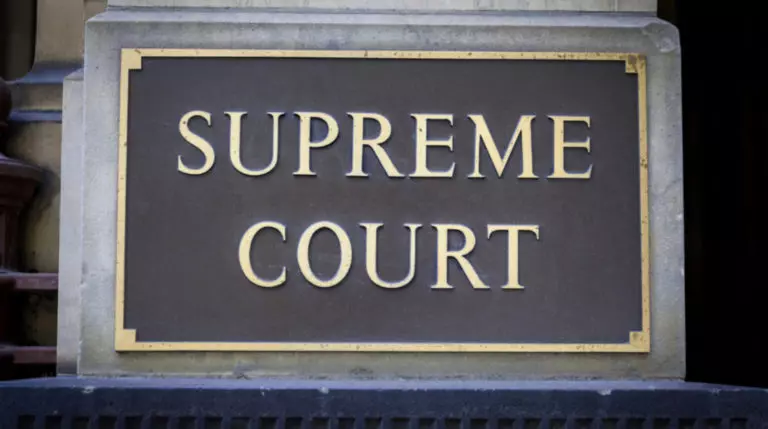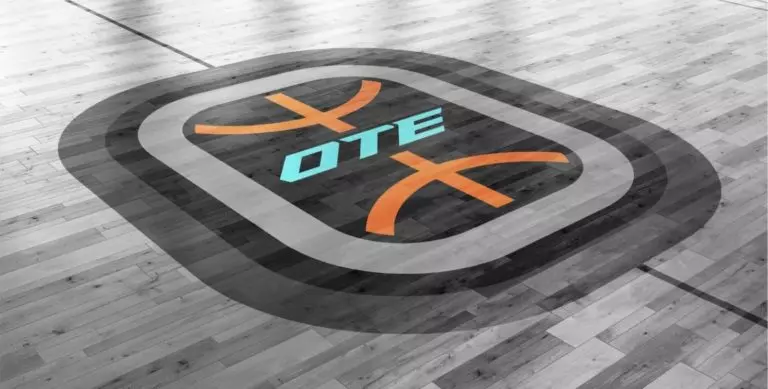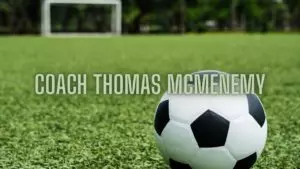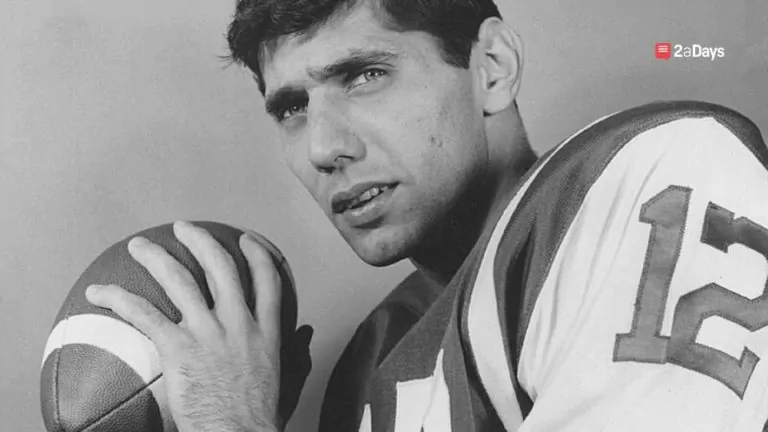If there's one thing that has the potential to unite people of all political affiliations, it's the consensus that the NCAA's breadth of control is getting out of hand.
On Monday, the Supreme Court released its decision over NCAA v. Alston, ruling unanimously against the NCAA. This is a massive moment in both sports law and college sports reform history, and many are calling it the death of athletic amateurism. That may be a bit of an exaggeration, but the optimism has some merit, and although the ruling's impact may not be broad, the possible repercussions could span years. Here are some key questions and answers surrounding the news.
What is NCAA v. Alston about?
NCAA v. Alston is essentially an antitrust lawsuit that challenges the NCAA's ability to cap educationally-related benefits. Technically, it does concern the compensation of collegiate athletes, but only as they are tethered to education, and it doesn't address scholarship limits, which are considered “reasonable” restrictions. Before the Supreme Court's ruling, the NCAA imposed caps on benefits related to education, arguing that lifting such restrictions could encourage boosters to pay athletes via educational perks (for example, under the NCAA's logic, a booster could gift a football player an antique grand piano worth thousands of dollars for his Music Theory 101 class and call it an educational benefit, when it would really be a payment in disguise). The NCAA has also argued repeatedly in the past that the non-payment of college athletes contributes to consumer demand, is therefore, pro-competitive and, by extension, not a violation of antitrust law.
The Supreme Court decided otherwise. Among other rebuttals, the court failed to “find much evidence to support the NCAA's contention that its compensation restrictions play a role in consumer demand.” The court also contended that educational benefits are different from other forms of compensation and could not be “confused with a professional athlete's salary… If anything, they ‘emphasize that the recipients are students.'” This is an important point: the ruling stresses the educational nature of college sports as it relates to compensation.
That's good, right?
Yes, in some ways—after all, college athletes should be in school to get an education and the opinion of the court seems to reflect that. However, the case doesn't address a litany of other compensation issues like athletic employment, “extra benefit,” or name, image, and likeness rules, and given that these forms of compensation aren't educational in nature, the ruling itself is narrow and leaves much to be desired. In fact, the opinion stated “this case involves only a narrow subset of compensation rules…the rest of the NCAA's compensation rules are not at issue here and, therefore, remain on the books.” So there's still a lot of work to do until college athletes are granted the same rights their non-athlete peers enjoy.
Why is the ruling significant?
Several reasons. First, the fact that the Supreme Court took the case at all indicates a key moment in the college sports reform movement. People in high positions of power are paying attention to issues that affect college athletes and they're not fully siding with the NCAA, which has been the norm for decades. Thus, the Alston ruling indicates an important shift in college sports reform because it opens the door to other antitrust lawsuits against the NCAA, and it's unlikely the courts will be blindly supportive of the NCAA in the future.
Although the Alston ruling is specific and narrow, the semantics surrounding the ruling are far broader. There are several important pending cases related to college sports, and the recent ruling may embolden attorneys to focus on other antitrust cases, kicking the door open to future lawsuits questioning the legality of the NCAA's NIL or scholarship cap policies, for instance. In short, the Alston ruling may catalyze other important college sports reform efforts that wouldn't be possible without this outcome.
The ruling also might inspire the NCAA to speed up its implementation of NIL rules to maintain a sense of control over them. The NCAA has been talking for months about modifying its NIL rules and citing the Alston case as a reason they were waiting to do so. Now that the ruling has arrived, it will likely influence what NIL rules the NCAA puts forth, as well as whatever congressional efforts the NCAA engages in so the courts won't interfere with their policy initiatives in the future.
What impact will the ruling have on educational benefits?
That's unclear for now, but it might not actually have a huge impact here at all. The ruling doesn't mandate that colleges give athletes unlimited educational benefits—that would be unrealistic and likely illegal. Rather, it's simply lifting the NCAA's caps on benefits like “scholarships for graduate or vocational school, payments for academic tutoring, or paid post-eligibility internships.” Given the financial fallout from the pandemic, coupled with athletic departments' inclination to excessively fund coaches and facilities, it's unclear if the ruling will have a stark impact on college athletes. In fact, after the ruling was released, the NCAA published a statement that read in part: “While today's decision preserves the lower court ruling, it also reaffirms the NCAA's authority to adopt reasonable rules and repeatedly notes that the NCAA remains free to articulate what are and are not truly educational benefits, consistent with the NCAA's mission to support student-athletes,” and this is correct. Athletic conferences and universities are also free to set their own restrictions on educational benefits, which limits the impact of the ruling, which honestly calls into question the legitimacy of the NCAA itself—if conferences and schools can effectively self-govern, what's the point of a governing body?
Is every athlete is going to get a full ride scholarship now?
Unfortunately, no. The court's opinion cited past rulings and acknowledged that scholarship limits constitute a “price-fixing agreement,” but contended that such caps are “reasonable in light of the possibility that ‘professional-level cash payments . . . could blur the distinction between college sports and professional sports and thereby negatively affect consumer demand.'” Whether or not that is true, it points to an important attitude expressed by the court: some restrictions are viewed as necessary to the college sports industry, and the distinction between collegiate and professional athletes (namely, payment) is important to the powers that be. In spite of the ruling, that's still a win for the NCAA.
Is this really the “death of amateurism?”
In spite of misleading headlines suggesting the court ruled in favor of “Payments to Student-Athletes,” no, not by a long shot. Although the NCAA's cap on educational benefits constitutes a “compensation restriction,” that doesn't mean that athletes will be paid like employees, or given sweeping free-market rights, because many state-level NIL laws impose guardrails over athletes, so it's not a true free market situation, and, as previously mentioned, scholarship limits will also not be affected. Even in light of the unanimous ruling against the NCAA, there is still a consensus that college sports are unique in some ways, and that seems to extend to direct athletic compensation and what constitutes reasonable price-fixing. So although the ruling is significant, the NCAA's collegiate model is largely intact for now, and there's still plenty of work to do in terms of athlete health and safety, NIL, antidiscrimination, and plenty of other policies that leave college athletes vulnerable and strip them of basic human rights. But one thing is certain, and Brett Kavanaugh said it well in his opinion: “The NCAA is not above the law.”
Katie Lever isn't a lawyer (so her articles don't constitute legal advice), but she is a former Division 1 athlete and a current doctoral candidate at the University of Texas who studies (and tweets about) NCAA discourse. Follow her to keep up with the NCAA on Twitter and Instagram: @LeverFever.
* Originally published on June 24, 2021, by Katie Lever, Ph. D







